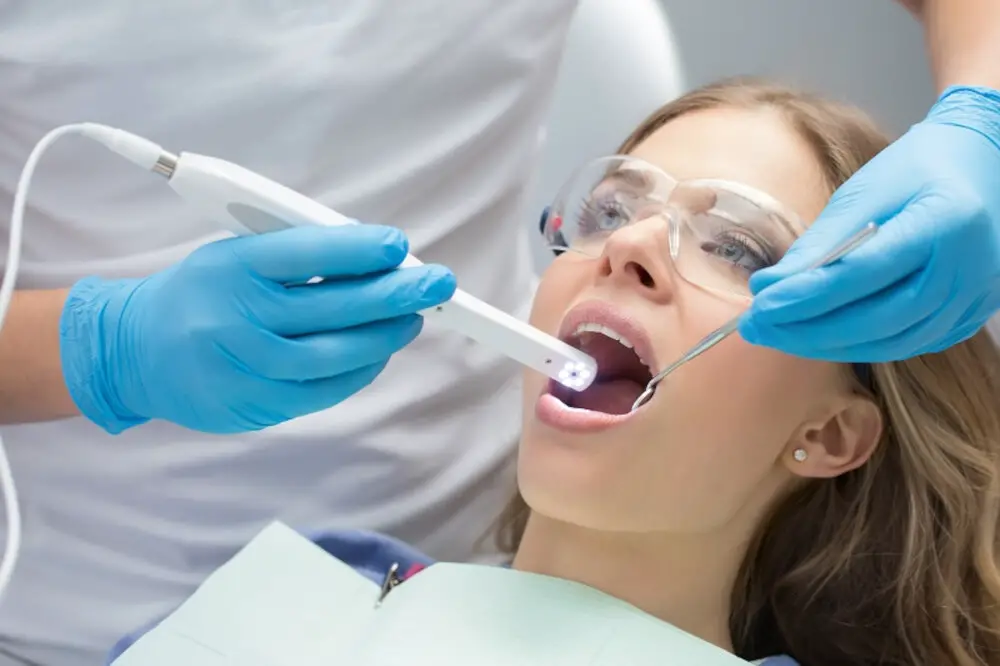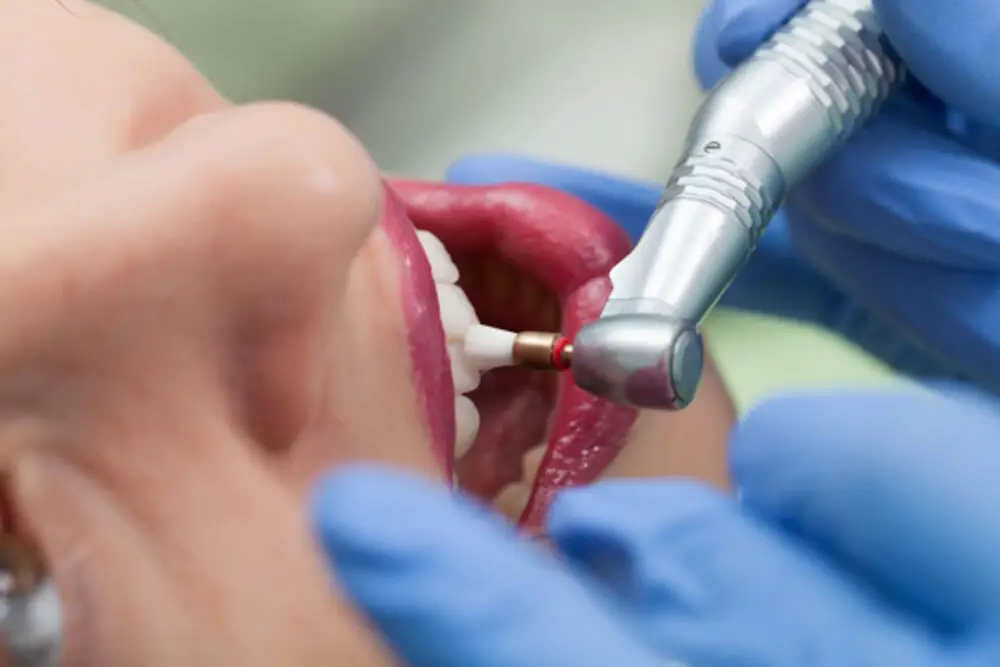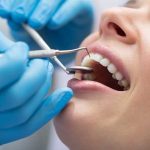Chihuahua Teeth: How Many Teeth Do These Tiny Dogs Have?

Chihuahuas are a breed of toy dogs known for their tiny size and big personality. Despite their small stature, they have a surprisingly large number of teeth in their tiny mouths. Understanding the dental makeup of Chihuahuas is essential for their overall health and well-being. Dental issues can cause discomfort and pain, leading to other health complications. Therefore, it is crucial to know how many teeth these tiny dogs have and how to take care of them properly. The average adult Chihuahua has 42 teeth in their mouth. This number includes incisors, canines, premolars, and molars. However, Chihuahua puppies only have 28 teeth initially, and they will develop their full set of teeth by the time they are six months old. As tiny dogs, Chihuahuas are prone to a wide range of dental problems, such as tooth decay, gum disease, and tartar buildup. Proper dental care can prevent such issues and help maintain a Chihuahua’s overall health and well-being.
The Chihuahua breed is known for its tiny size and big personality. Originating from Mexico, this breed is named after the state of Chihuahua. They typically weigh between 2 to 6 pounds and stand about 6 to 9 inches tall. Chihuahuas have a distinctive apple-shaped head and large, round eyes that give them a cute and somewhat comical appearance. They come in a variety of coat colors and patterns, including smooth, long, and wire-haired. Despite their small size, Chihuahuas are known for their feisty and confident personalities, making them excellent watchdogs. Overall, the Chihuahua is a beloved breed adored for both their adorable looks and fierce personality.
Dental health is an essential aspect of a dog’s overall well-being, and it’s particularly vital for Chiwawas, which are prone to dental issues. Poor oral hygiene can lead to tooth decay, gum disease, and even tooth loss, which can be painful for the dog and affect their ability to eat and play. Regular dental check-ups and cleaning can prevent these problems and keep your Chihuahua’s teeth healthy and strong. Additionally, chewing on dental treats or toys can help remove plaque and tartar buildup, reducing the risk of dental problems. Overall, maintaining good dental health is critical for your Chihuahua’s overall health and happiness.
Chihuahua Teeth Anatomy

Chihuahuas are one of the smallest dog breeds we have, but their teeth are as unique as their size. These dogs have a total of 42 teeth, with 20 teeth in the upper jaw and 22 teeth in the lower jaw. They have a dental formula of 2/4 incisors, 1/1 canine, and 3/3 premolars and molars. The teeth of Chihuahuas are small in size, but they are sharp and strong enough to help them chew their food. The front teeth, which are the incisors, are used for biting and tearing food into small pieces. The canines, which are the longer and more pointed teeth, are used for grasping and holding objects or prey. Chihuahuas have unique dental anatomy that enables them to chew their food and maintain their oral hygiene. Their teeth are rooted deeply into the jawbone, which helps them to withstand the forces of chewing and biting. These dogs also have a strong enamel covering their teeth, which is the hard, outer layer that protects them from damage and decay. Chihuahuas’ teeth are also well-aligned, which helps them to chew their food evenly and prevents any dental issues. However, like other dogs, Chihuahuas can suffer from dental problems if their teeth are not cared for properly. Therefore, it is essential to take care of their teeth by brushing them regularly and taking them for dental check-ups.
The Chihuahua, also known as the smallest dog breed, features a unique set of teeth that sets them apart from other dog breeds. These tiny dogs have a total of 42 teeth, which includes 20 upper teeth and 22 lower teeth. Their teeth are small and sharp, designed for tearing and grinding small pieces of food. Additionally, Chihuahuas have a unique dental formation, known as a \reverse scissor bite,\ where the lower teeth overlap the upper teeth. This dental arrangement helps these petite pups to chew food efficiently, and also contributes to their adorable appearance. Keeping a close eye on your Chihuahua’s dental health is essential, as small teeth can lead to dental problems, such as tooth decay or gum disease.
The number of teeth in adult Chihuahuas is a topic of interest for many pet owners. These tiny dogs have a small mouth, but they still have a full set of teeth. Adult Chihuahuas have 42 teeth, just like other dogs. These teeth are divided into different types, including incisors, canines, premolars, and molars. The incisors are the small teeth at the front of the mouth, which are used for biting and grooming. The canines are the longer, pointed teeth used for tearing meat. The premolars and molars are located at the back of the mouth and are used for grinding and crushing food. It is important for Chihuahua owners to take care of their pet’s teeth to ensure they stay healthy and strong.
Chihuahuas, like all dogs, have different types of teeth that serve various functions. Incisors are the front teeth used for biting and taking hold of objects. Canines, also known as fangs, are positioned next to the incisors and are used for tearing and holding prey. Premolars are located towards the back of the mouth and help grind and crush food. Finally, molars are the largest teeth found at the back of the mouth and are responsible for crushing and grinding food further. Each type of tooth plays a crucial role in a Chihuahua’s ability to eat, chew, and enjoy their food, making it important to maintain proper dental hygiene to ensure their teeth remain healthy and strong.
Common Dental Problems in Chihuahuas

Chihuahuas are known for their tiny size, but they can also have big dental problems. One of the most common dental problems in Chihuahuas is dental plaque and tartar buildup. This occurs when food particles and bacteria accumulate on the teeth and harden into plaque. If the plaque is not removed, it can turn into tartar, which can cause gum inflammation, bad breath, and eventually lead to tooth loss. To prevent this, it is important to brush your Chihuahua’s teeth regularly and provide them with dental chews and toys to help remove plaque and tartar. Another common dental problem in Chihuahuas is tooth decay. This can occur when the enamel on the teeth is eroded by acid produced by bacteria in the mouth. Tooth decay can cause pain, sensitivity, and difficulty eating. To prevent tooth decay, it is important to feed your Chihuahua a healthy diet and avoid giving them sugary treats. Regular dental check-ups with a veterinarian can also help identify and treat tooth decay early on to prevent further damage. By taking proper care of your Chihuahua’s teeth, you can help prevent these common dental problems and ensure they maintain good oral health.
Tartar and plaque buildup are common dental problems in Chihuahuas and other small breed dogs. Tartar is a hard, yellowish substance that accumulates on the teeth when plaque, a sticky film of bacteria, is not removed. If left untreated, the buildup of tartar and plaque can lead to gum disease, tooth decay, and even tooth loss. Regular dental care, including brushing your Chihuahua’s teeth and providing dental chews or toys, can help prevent tartar and plaque buildup. Additionally, scheduling regular dental cleanings with your veterinarian can help keep your Chihuahua’s teeth healthy and clean.
Gum disease is a common dental problem that affects not only humans but also dogs, including Chihuahuas. It is caused by a buildup of plaque and tartar on the teeth and gums, leading to inflammation and infection. The symptoms of gum disease in Chihuahuas include bad breath, bleeding gums, loose teeth, and difficulty eating. If left untreated, gum disease can lead to tooth loss and other serious health complications. To prevent gum disease in Chihuahuas, it is essential to provide them with proper dental care, including regular brushing, professional cleanings, and a healthy diet.
Tooth decay is a common dental problem that occurs when the outer layer of the tooth, known as enamel, is damaged due to the buildup of plaque and bacteria. If left untreated, tooth decay can lead to cavities, gum disease, and even tooth loss. Chihuahuas, like all dogs, are also susceptible to tooth decay, which can be caused by poor dental hygiene, a diet high in sugar, and genetic factors. It’s important for owners to regularly brush their Chihuahua’s teeth, provide them with dental chews, and schedule routine dental checkups with their veterinarian to prevent tooth decay and maintain their overall oral health.
Bite alignment issues in Chihuahuas can lead to several dental problems. A misaligned bite can cause excessive wear and tear on the teeth, leading to erosion and decay. This can cause discomfort, pain, and inflammation in the gums, leading to periodontal disease. In severe cases, bite alignment issues can also lead to difficulty in eating and chewing, which can affect a Chihuahua’s overall health and wellbeing. Therefore, it is crucial to address any bite alignment issues early on and seek professional dental care to prevent further complications.
Preventative Measures for Dental Health in Chihuahuas

Dental health is an often overlooked aspect of pet care, but it is crucial for the overall well-being of your Chihuahua. Preventative measures for dental health in Chihuahuas include regular teeth cleaning, providing dental chews, and monitoring their diet. Chihuahuas are prone to dental issues, such as gum disease and tooth loss, so it is important to be proactive in maintaining their oral health. Regular teeth cleaning, either at home or through professional cleaning by a veterinarian, can prevent the buildup of plaque and tartar that can lead to dental problems. Providing dental chews, such as rawhide bones or dental sticks, can also help prevent dental issues in Chihuahuas. These chews work to scrape away plaque and tartar as your Chihuahua chews on them, promoting healthier teeth and gums. Additionally, monitoring their diet can also play a role in dental health. Feeding your Chihuahua a balanced diet with appropriate nutrients can help maintain strong teeth and gums. Avoiding sugary treats and table scraps can also help prevent dental issues. By taking preventative measures for dental health in Chihuahuas, you can help ensure that your furry friend has a healthy and happy smile for years to come.
Regular dental checkups are essential for maintaining good oral health in Chihuahuas. These tiny dogs have 42 teeth, which are prone to a buildup of plaque and tartar. Neglecting dental care can lead to tooth decay, gum disease, and other serious health problems. During a checkup, a veterinarian or dental hygienist can identify any issues and provide treatment as necessary. This may include a professional cleaning or extractions. In addition to professional care, owners should also brush their Chihuahua’s teeth regularly and provide appropriate chew toys to help keep their teeth clean and healthy. By prioritizing dental care, Chihuahua owners can ensure that their furry friends maintain a happy and healthy smile for years to come.
Brushing teeth at home is an essential part of maintaining good oral hygiene for Chihuahuas. These tiny dogs have 42 teeth in total, and it’s crucial to keep them clean to prevent dental issues such as gum disease, tartar buildup, and tooth decay. It’s recommended to brush their teeth at least twice a week using a small toothbrush and toothpaste specially designed for dogs. Regular brushing helps remove food particles, bacteria, and plaque that can cause bad breath and other dental problems. Additionally, providing dental chews and toys can also aid in keeping their teeth clean and healthy. By taking good care of their teeth, Chihuahuas can have a healthier and happier life.
Providing dental chews and toys is an excellent way to promote dental health in Chihuahuas. These tiny dogs have a small mouth with 42 teeth that require proper care to prevent dental problems. Dental chews and toys are great for maintaining healthy teeth and gums while also providing a stimulating activity for your furry friend. These chews and toys help to remove plaque and tartar buildup, reduce bad breath, and keep their teeth strong and healthy. Additionally, they can help prevent destructive chewing behavior and keep your Chihuahua entertained and mentally stimulated. Make sure to choose safe and appropriate chews and toys for your Chihuahua’s size and chew strength, and always supervise them during playtime to ensure their safety.
Feeding a healthy diet to your Chihuahua is key to maintaining their overall health and dental hygiene. As a small breed, Chihuahuas have specific dietary needs that should be met to keep them healthy and happy. Their diet should consist of high-quality protein, healthy fats, and a balanced amount of carbohydrates. Choosing foods that are specifically formulated for small breeds can help ensure that your Chihuahua gets the nutrients they need without overeating. Additionally, it’s important to avoid feeding your Chihuahua table scraps or foods that are high in sugar or fat, as this can lead to dental problems and obesity. By feeding your Chihuahua a healthy diet, you can help them maintain a healthy weight and prevent dental issues, ensuring that they live a long and happy life.
The Chihuahua is a small breed of dog that has a unique set of teeth in terms of both anatomy and dental health. These tiny dogs typically have 42 teeth, which include incisors, canines, premolars, and molars. The Chihuahua’s teeth are relatively fragile, which means that they require regular dental care to maintain their health. Chihuahuas are prone to dental problems, such as tooth decay, gum disease, and tooth loss, due to their small mouth and crowded teeth. Good dental hygiene practices, such as regular brushing, dental cleanings, and a healthy diet, are essential for maintaining the dental health of the Chihuahua breed. By taking good care of their teeth, Chihuahuas can enjoy a lifetime of healthy smiles.
Regular dental care is crucial for the overall health and well-being of Chihuahuas. Despite their small size, these tiny dogs have a full set of 42 teeth, which can be prone to dental issues such as plaque buildup, gum disease, and tooth decay. Neglecting dental care can lead to painful and costly health problems, including tooth loss and infections that can spread to other parts of the body. Owners can help maintain their Chihuahua’s dental health by providing them with a balanced diet, daily tooth brushing, and regular dental check-ups with their veterinarian. By prioritizing dental care, Chihuahua owners can ensure that their furry friend has a healthy and happy smile for years to come.
Maintaining dental health in Chihuahuas is crucial for their overall wellbeing, as dental issues can lead to severe health problems. Therefore, it is essential to encourage Chihuahua owners to take steps towards caring for their pet’s teeth. Regular brushing, dental checkups, and a balanced diet with dental chews are some ways to keep your Chihuahua’s teeth in good condition. Neglecting dental hygiene can lead to plaque buildup, gum disease, and even tooth loss, which can be painful and expensive to treat. By taking preventative measures, you can help your Chihuahua maintain healthy teeth and a happy, comfortable life.
Conclusion

In conclusion, despite their small size, Chihuahuas have a surprisingly large number of teeth. These tiny dogs have a total of 42 teeth, including incisors, canines, premolars, and molars. Keeping their teeth healthy is essential for their overall health and wellbeing. Regular dental care, including brushing, professional cleanings, and providing appropriate chews and toys, can help prevent dental problems and ensure a healthy smile for your beloved Chihuahua. So, it’s crucial to pay attention to their dental health and take the necessary steps to keep their teeth in good condition.







